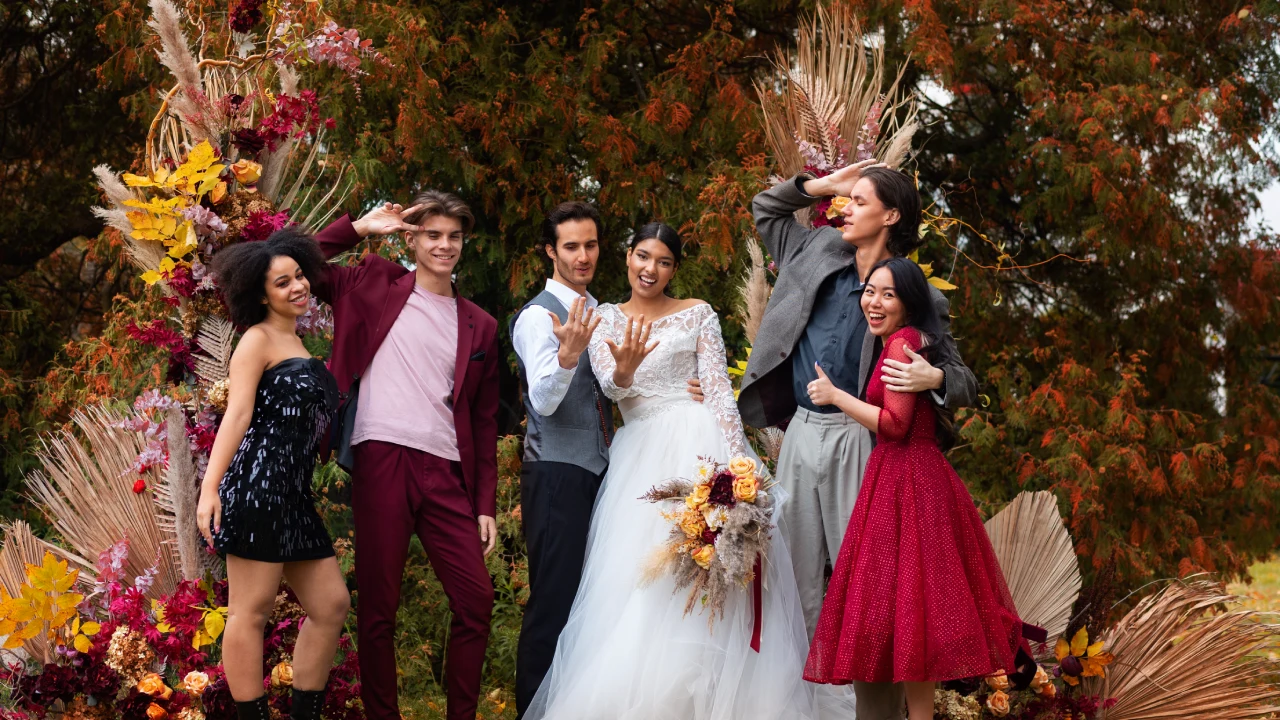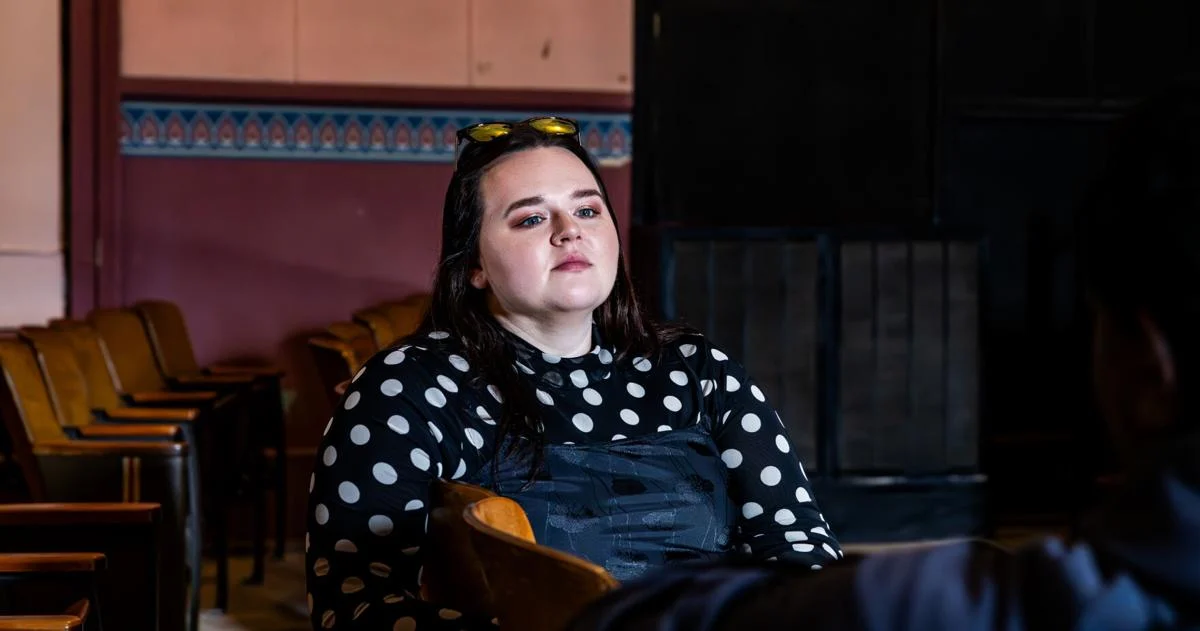By Samden Lama Dukpa
Copyright techgenyz

Highlights:
AI wedding planners create generic budgeting, wedding logistics, and guest management for stress-free celebrations.Smart tools create personalized decor and venue tours that are designed around the couple’s vision for their wedding.Intervention in touching personal matters, such as vows or seating charts, will never detract from the human sentiment.
A walk down the aisle is often recalled as one of the most thrilling moments in someone’s life, yet there are myriad logistics beneath the romanticism. From venue selection down to seating arrangements, the wedding checklist has gained infamy for being overwhelmingly long.
Responding quietly to this, there is a modern revolution: AI is fast gaining air as a co-pilot for couples, radically changing the way they plan, personalize, and perfect their wedding day. Far from science fiction, AI wedding planning is the new chic glamour, and the contemporary bride and groom couldn’t ask for a better ally in automating the most time-consuming aspects of their wedding preparations.
Statistics reveal that AI is progressing from an exotic notion to a required tool. In one recent study of wedding planning trends, almost 40% of the participants said they used or wanted to use AI as part of their wedding planning. Among those currently participating and in the process of getting married, the rate of adoption is even greater, with 73% planning on using smart technology in some way.
This shift is meaningful: Research indicates that couples are choosing to keep the services of a traditional human wedding planner at arm’s length and instead go ahead to commandeer the marriage themselves using a bespoke, homemade AI wedding planner. This self-help, tech-supported method is especially appealing to those with tight budgets or those who want a hand in putting their own event together.
Mastering the Managerial Maze
One of the most real and significant advantages of automated planning is to relieve complex logistical and financial pressures. AI can do the jobs that normally stress us out.
1. Budget Optimisation
Weddings can be one of the most expensive events in a couple’s lifetime, so managing finances is a priority. Budgeting help is one of the top three applications for AI planners, and 37% of couples use these resources. For its users, the most beneficial skills are estimating overall costs and proposing efficient means of reducing them, both of which are highly rated by 79% of its users.
AI is well capable of examining extensive price data to offer cost-saving options, proposing cheap suppliers or décor that continues to have the desired style without escalating the cost. In addition, they help keep track of expenditures, a function that is essential to sustaining financial control as plans change, processing everything from initial deposit payments to last-minute balances and surprise expenses.
2. Logistical Organisation:
The automation reaches far into planning the event itself. Honeymoon organisation is the second most utilised application at 42%, with couples using AI to plan their wedding getaway. The planner will suggest destinations according to travel habits and budget, create personalised itineraries, and contrast airline and accommodation options, taking hours of research out of the equation.
For the wedding itself, AI facilitates communication and guest management. Automated emails and chatbots provide hassle-free bridging with vendors and venues, an essential service particularly for destination weddings, where couples might be distant from the destination venue. In the case of the guest list, AI applications track RSVPs with ease, handle non-attendee names, and log detailed dietary requirements, relaying these details effectively to caterers to make meal service less problematic.
Creating the Dream Wedding
AI is also becoming an invaluable creative collaborator, assisting couples in dreaming up and designing their ideal look.
1. Theme and Décor Inspiration
Choosing a unified look can be daunting in light of the volume of ideas found online. More than 33% of couples use their virtual assistant to find theme and décor ideas. By observing the couple’s vision, desired style, location, and time of year, the AI planner shortlists the crushingly huge choices by creating customized mood boards, colour palettes, and elaborate table setting ideas. AI algorithms access enormous databases to infer industry trends, providing an edge in generating advanced, in-the-moment, and pertinent recommendations.
2. Visualizing the Venue
Picking the venue is an essential choice, and AI can make it dramatically easier. Algorithms consider budget, number of guests, and interests to create a customized list of venues that are well-suited. In destination events, there are AI-based systems that provide virtual tours, enabling the couple to visually tour venues in 3D without physically going there, providing a real feel of the place and arrangement. Moreover, AI can help maximise the utilisation of the venue’s layout, suggesting optimal table spacing and improving flow between areas like the dance floor and dining rooms to enhance guest comfort.
3. Invitation Design
Conventionally, producing invitations subject to innumerable backwards-and-forward design alterations with a designer is plainly laborious. AI design software is cropping up to streamline this aspect of the preparation. By taking text inputs specifying requirements or ideas, systems can produce preliminary design concepts and interact with users on revisions, significantly lessening the time spent creating visually appealing, customised wedding stationery.
Getting Around the Human Factor
The most surprising domain of AI uptake, perhaps, is for activities long regarded as intensely personal and emotional: seating and speeches.
1. Writing Touching Words
AI wedding speech software is the single most prevalent application for these planning tools, and 55% of grooms and brides employ them to gain inspiration, outline, or editing suggestions for vows and speeches. For the 72% of couples who confessed they had no idea where to begin, AI offers a useful guide on tone, content, and form. But this is one place where discretion is still key; most couples still want to keep things in hand, with 63% comfortable only with a quarter or fewer of their vows being generated by AI. This means that AI is not used here as a replacement for real sentiment, but as an aide to refine and organise authentic sentiment.
2. Resolving Guest Drama
Seating chart planning is usually tricky, with inside family politics and friendship intrigue. Almost one in five couples uses AI to make this complicated task more efficient. AI planners are advanced enough to consider guest relationships, possible disharmony, and special dietary requirements. By considering who gets along—and who most certainly does not—AI can recommend diplomatic seating assignments, skipping unnecessary tension and securing a more enjoyable environment for all guests. Almost half of couples think AI might assist in breaking difficult guest conflicts with ease, relieving considerable emotional burdens from the couple’s shoulders.
The Future Partnership
Though AI is revolutionary, the argument concerning the ‘human touch’ remains. Certain anxieties still persist, with 28% of respondents who are unwilling to adopt AI attributing it primarily to a lack of personalisation. Critics fear that automation could diminish the emotional and interpersonal nature of such an important day, converting it into a transactional affair.
But the prevailing view is in favour of integration, not replacement. The business is shifting through a harmonious collaboration where AI takes care of the mundane, data-intensive, and repetitive tasks—such as comparison shopping, cost tracking, and dealing with complicated schedules—allowing human planners (or the couple themselves) to focus on the imaginative, personal, and emotionally charged aspects.
In spite of ongoing worries about over-dependence on technology and personal data protection, a remarkable 89% of the respondents are convinced that AI will have an even larger role to play in wedding planning in the years to come. As AI becomes increasingly intelligent and user-friendly, it holds out the prospect of minimizing the stress involved in planning a wedding so that the journey to the marriage day is productive, budget-friendly, and completely tailored to the specific narrative of the couple.



